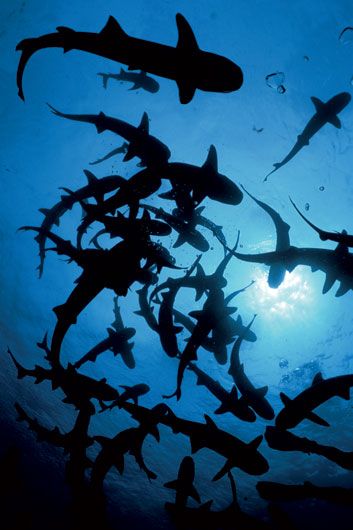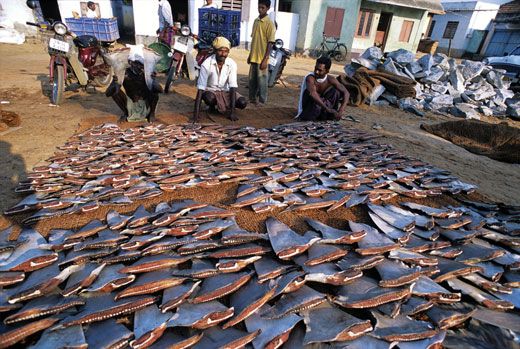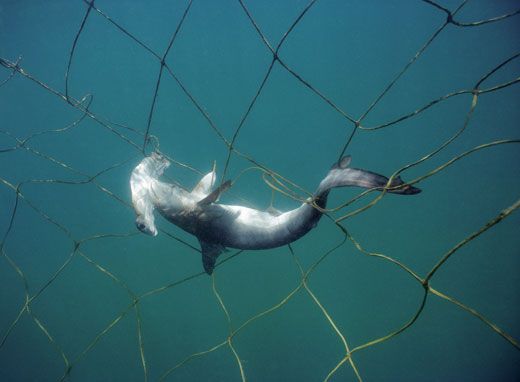Shark
Recent attacks on people off the Florida coast are a reminder of the animal’s fierce nature. Yet scientists say the predator is itself in grave danger
With more people spending more recreational time in the water, the number of shark attacks has risen steadily, peaking in 2000 with 78 attacks and 11 deaths. Since then it has slacked off somewhat: 61 men, women and children experienced violent encounters with sharks last year; 7 died. Biologist George Burgess, director of the Florida Program for Shark Research at the University of Florida in Gainesville, is not reassured: "I think we will see more attacks in this decade than we did in the last one."
Whenever a shark-caused human fatality occurs, it makes headline news. But the real story is not the rare threat that sharks pose to us, tragic as individual cases invariably are, it's the profound harm we are doing to them. Before too much longer, we may reduce many shark species' once-teeming numbers to a remnant few. Decades of commercial fishing have devastated shark populations in every quarter of the globe.
Depleted populations are hard-pressed to come back because, as one researcher puts it, sharks "have so many biological Achilles' heels." Many species don't mate until they're in their teens, and then may bear small litters only once every two years. Most give birth to live young. Such traits have served sharks well for eons, but today we're eliminating the animals faster than they can reproduce. The annihilation is happening just as shark researchers, such as those at the Mote Marine Laboratory's Center for Shark Research in Sarasota, Florida, are generating important new insights into how these notorious but surprisingly little-understood creatures live—where they go, how they behave and what roles they play in the balance of marine life.
According to the World Conservation Union, a Switzerland-based scientific and governmental consortium that keeps tabs on endangered plants and animals, nearly two dozen shark species have been driven to the brink of extinction. "They are in such distress," says Burgess, "that even if all fishing and killing stopped right now, we're still talking about a recovery that would take decades." And if those species don't bounce back? There will be "serious and unforeseen consequences," says Ramón Bonfil, a fisheries expert with the Wildlife Conservation Society in New York City. He warns that the loss of one of the ocean's top predators could throw the entire marine ecosystem out of whack. "We need to use a lot of caution," he says.
/https://tf-cmsv2-smithsonianmag-media.s3.amazonaws.com/accounts/headshot/Kemper_HighRes_2.png)



/https://tf-cmsv2-smithsonianmag-media.s3.amazonaws.com/accounts/headshot/Kemper_HighRes_2.png)